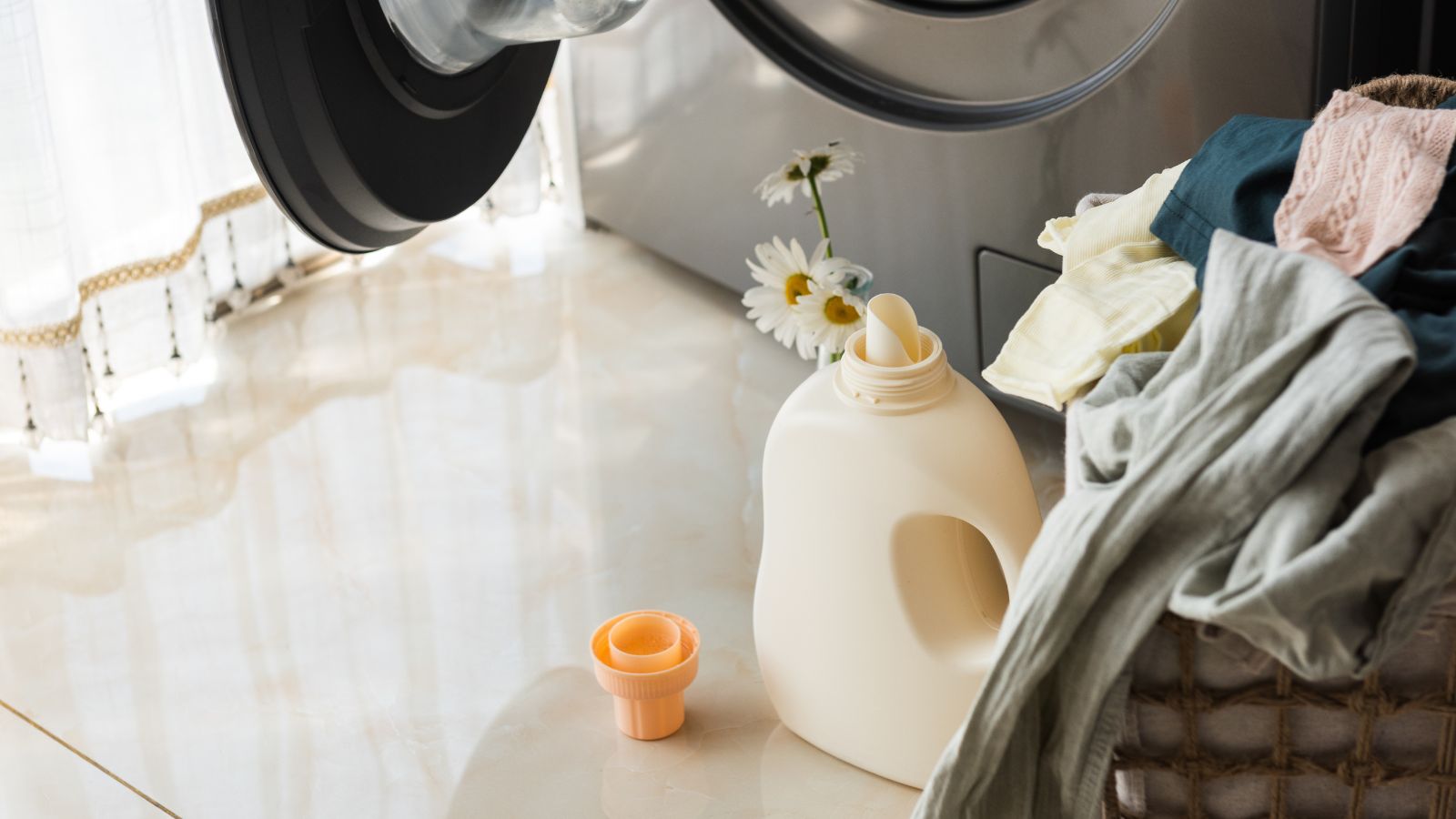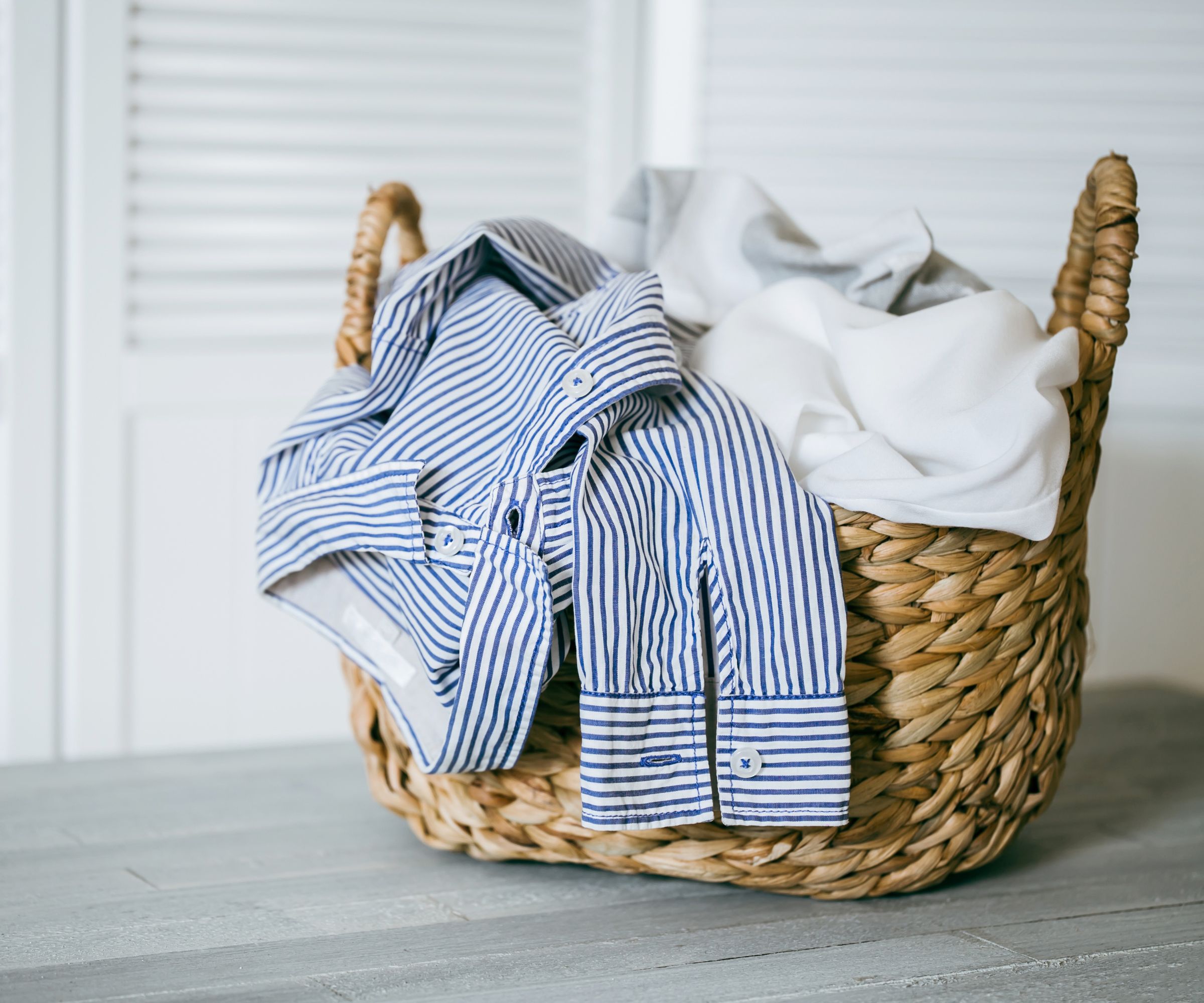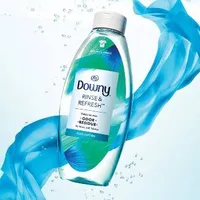Fabric care scientists reveal the surprising reason your laundry never smells fresh longer than a day
Odor residues create a 'difficult-to-remove “glue”' that must be dissolved away


The fresh smell of laundry when it comes out of the dryer is blissful, but it can be disappointing when the fragrance disappears after a single wear – or even just putting it in your closet.
It turns out that there is a hidden odor residue that may be lingering behind on your clothing, even after doing laundry, that could be preventing clothes from smelling fresh.
Here, principal fabric care scientist Jennifer Ahoni from P&G explains what odor residues are, what causes them, and how to eradicate them for truly fresh washing.
What are odor residues?
There are plenty of laundry hacks to help you save time, but many of them result in lingering odor residues – a compound formed by our skin cells, salts, sweat, and sebum, explains Jennifer Ahoni, fabric care scientist.
‘On a regular day, our bodies can create over one liter of sweat and 40g of sebum that can transfer to our clothes. These body soils then break down into stinky compounds that lead to odor,’ she shares. ‘This trapped body soil can continue to build up on fibers if it’s not cleaned properly, leading to stubborn odors and what we call “re-bloom”, which is when bad smells come back rapidly after initially smelling fresh, which is caused by odor-causing residues left on clothes.
'These residues are a mixture of hard water metals from wash water, body soils, and even poor-quality detergents. They create a difficult-to-remove “glue” (think soap scum) that needs to be dissolved away – a little like stripping laundry.’

Jennifer Ahoni is P&Gs NA Fabric Care Scientific Communications Director. For 12 years she has contributed to products like Tide Laundry Power PODS and Tide Infinity, and overseen P&G’s laundry partnership with NASA. She also has a B.S. in biomedical engineering.

It turns out that some clothes are more susceptible to odor residues than others too – and unfortunately for us, they are the materials we wear the most often.
Design expertise in your inbox – from inspiring decorating ideas and beautiful celebrity homes to practical gardening advice and shopping round-ups.
Synthetic fabrics, such as polyester, nylon, and elastane (a common fabric for sportswear) are particularly attracted to natural greases and oils like sebum, Jennifer says. The worst news is yet to come, however, as she warns that ‘both synthetic fibers and greases are hydrophobic, or water-fearing. That means not only are they attracted to each other, but it’s also harder for water to clean them away!
'In fact, we refer to synthetic fibers as dirt and odor magnets. Any garments that are fully synthetic or contain synthetic fibers are more likely to get smellier faster.’
But we won't be giving up on the pursuit of nice-smelling laundry yet: between separating your laundry correctly, using the right laundry products, and knowing when to wash clothes in cold water, it is possible to beat the ick.
How to remove odor residues for long-lasting freshness

There are a few steps you should follow when trying to remove odor residues once and for all, Jennifer recommends, and it begins with your rinse cycle – a segment of laundry that many of us underestimate.
1. Swap your fabric softener for a strong rinse-cycle detergent booster
Fabric softener is often a go-to for making our clothing comfortable to wear and keep them smelling fresh, but it is not the best for removing embedded odors, Jennifer warns. While conditioners and softeners deposit products onto the garment to cover smells and soften fibers, a strong detergent booster that works in the rinse cycle will not only scent your products but remove stubborn hydrophobic sebum build-up before it has the chance to cement itself into the garment or linens.
Jennifer recommends using a standard detergent such as Tide, available at Walmart, along with Downy Rinse & Refresh, available at Target.
Downy Rinse & Refresh Cool Cotton | $6.99 at Target
Downy Rinse & Refresh is a breakthrough laundry odor remover that helps rinse away the smelly residue trapped within fabric fibers.
‘I love this product for its low pH technology that actually dissolves away odor-causing residues and other buildup on fabrics, kind of like a clarifying shampoo on your hair,’ she shares. ‘It is added to the fabric softener drawer and gets dispensed in the rinse cycle of the washer, but it works differently than fabric softener.
‘By removing excess residues, your colors can stay more vibrant and fabrics feel softer because the buildup is stripped away – it is also safe to use on all fabrics and for all loads, including athletic wear and towels, which are often the worst culprits for odor and odor re-bloom and you usually can't use softener on!’
While you could use vinegar in laundry for a similar effect, vinegar can damage your fibers over time and can even leave a vinegary smell behind, which isn't much better than having musty clothing after a single wear.
2. Use cold water
More often than not, you can still wash your clothing in cold water – even when you are worried about odors. Although there is evidence that hotter water kills more bacteria which can cause odors, this can be counteracted with a good detergent and will avoid accidentally shrinking, fading, or setting stains in your garments and linens.
What’s more, this process not only helps you save money at home, but many laundry products are now designed to work in cooler water temperatures, such as Tide detergent and Rinse & Refresh, and using hotter temperatures can lower their efficiency, Jennifer adds.
3. Dry thoroughly to prevent musty odors
Although Rinse & Refresh is designed so that you can theoretically leave your laundry wet in the machine overnight and the scent not is affected, it is still best to dry your laundry quickly, as soon as it has been washed to help preserve the fragrance and prevent the development of mildew or mold which can leave them stained and smelling musty.
As soon as your washing machine cycle is complete, spin and drain your clothing and then transfer them to a tumble dryer or washing line to dry in the sun.
4. Store correctly in a clean closet
How you store your clothes will then also help to preserve their freshness until you come to wear them, adds Millie Hurst, Solved section editor for Homes & Gardens. Bundling them up in a packed drawer or shoved in an overflowing closet is a common clothes storage mistake we often make and can prevent the fabrics from breathing, leading to a musty odor, she says.
‘Instead, make sure you declutter your closet and dresser and clean your closet to make sure your clothes have the best environment between wears – and avoid putting once-worn clothing back in with freshly washed garments,’ she adds.

Millie Hurst is Section Editor at Homes & Gardens, overseeing the Solved section, which provides readers with practical advice for their homes. Millie has written about and tried out countless cleaning and DIY hacks in the six years since she became a journalist, and has worked in both London and New York.
FAQs
Why don’t my clothes smell fresh after washing?
If your clothes don’t smell fresh coming out of the washing machine, then it can be for a few reasons. Firstly, it may be that you are using too much detergent, which can actually trap bacteria on your clothes and make it harder to wash away.
It could also be that your washing machine is dirty or growing mold, and needs deep cleaning to help freshen up the drum. Alternatively, you may not be washing your clothing on the correct cycle, using cold water and a light spin for heavily soiled fabrics that require more vigorous treatment.
Why do my clothes smell bad after drying?
Clothing that smells bad coming out of your dryer or off of your washing line can be a sign that they have dried too slowly, allowing the development of mold or mildew, or you have mold and mildew in your machine. Excess moisture left to linger creates a musty smell that can be tricky to get rid of without washing and drying again.
As with any laundry treatment, it is important to check the laundry symbols on the care label first to make sure you won't be damaging your garments or household linens with the wrong detergents, water temperatures, or spin cycles first, reminds Millie Hurst, Solved section editor. ‘Having nice smelling laundry is important, of course,’ she says, ‘but it should never come at the cost of having to throw away a piece of clothing.’

Chiana is Homes & Gardens’ kitchen appliances editor. With a lifelong passion for cooking and baking, she grew up experimenting in the kitchen every weekend with her baking-extraordinaire Mom, and has developed a great understanding of how tools and appliances can make or break your ideal relaxing kitchen routine.
